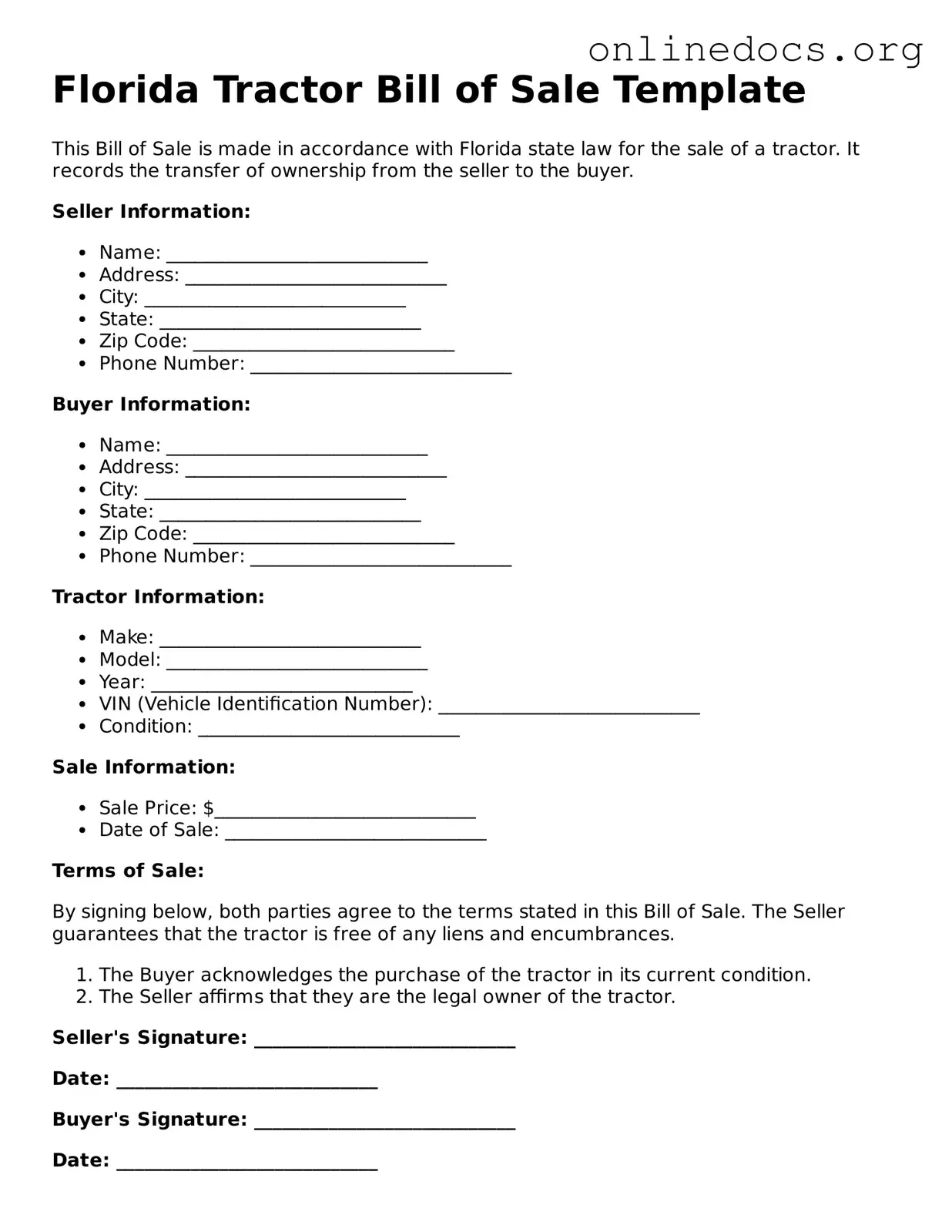When filling out the Florida Tractor Bill of Sale form, many people make common mistakes that can lead to issues down the road. One frequent error is not including all required information. It’s essential to provide complete details about the tractor, such as the make, model, year, and Vehicle Identification Number (VIN). Missing any of this information can create confusion and complicate the sale.
Another mistake is failing to accurately describe the condition of the tractor. Buyers want to know what they are purchasing. If the description is vague or misleading, it can lead to disputes later. Being honest about any damages or repairs is crucial.
People often forget to include the sale price. This might seem obvious, but leaving this section blank can cause problems for both the buyer and seller. The sale price is important for tax purposes and for the buyer's understanding of the transaction.
Some individuals neglect to sign the document. Both the buyer and seller must sign the Bill of Sale for it to be valid. Without signatures, the document holds no legal weight, and the transaction may be questioned.
Not providing contact information is another common oversight. Including phone numbers and addresses helps maintain communication if any issues arise after the sale. It’s a simple step that can save a lot of hassle later.
In some cases, people fail to date the form. A date is crucial as it establishes when the transaction took place. This can be important for record-keeping and for any potential disputes that may arise in the future.
Another mistake is not keeping a copy of the Bill of Sale. After completing the form, both parties should retain a copy for their records. This serves as proof of the transaction and can be useful if any questions come up later.
Many forget to check for typos or errors before submitting the form. Simple mistakes can lead to confusion and potential legal issues. Taking a moment to review the document can prevent unnecessary complications.
Some individuals also overlook the importance of notarization. While it may not be required in all situations, having the Bill of Sale notarized can add an extra layer of protection and legitimacy to the transaction.
Lastly, people sometimes assume that the Bill of Sale is enough for transferring ownership. While it is an important document, it may not replace the need for additional paperwork, such as title transfer. Understanding all requirements ensures a smooth transaction.
